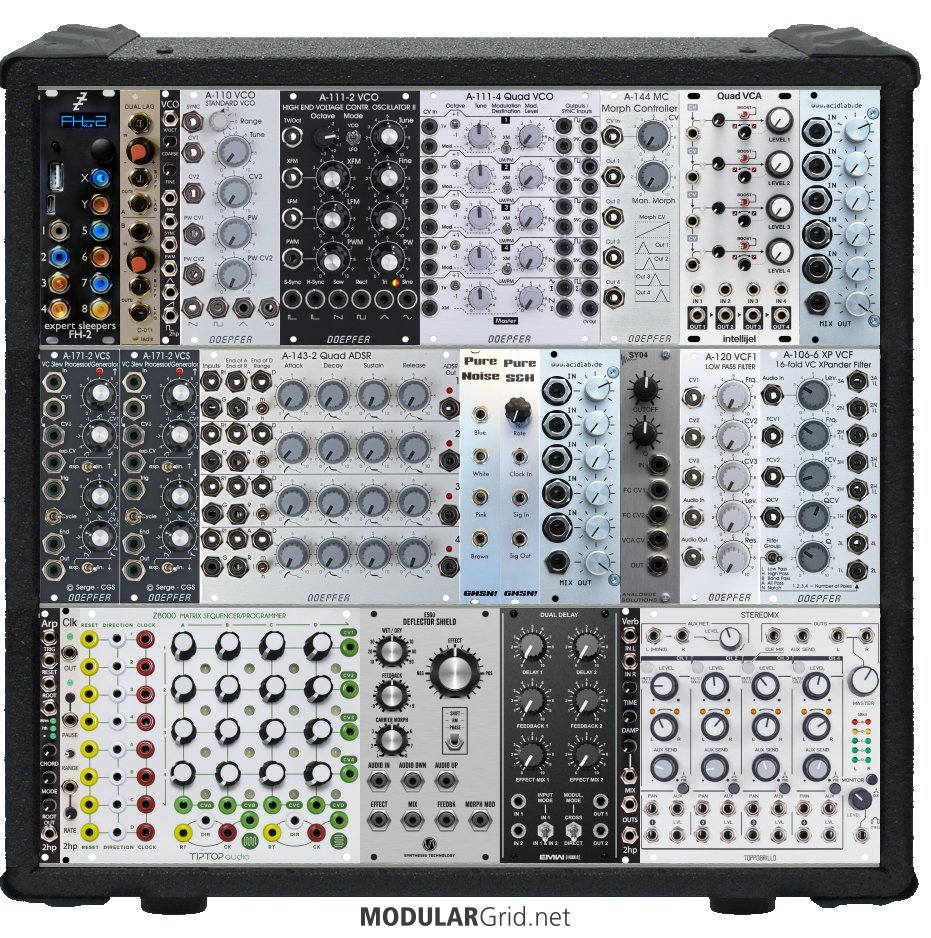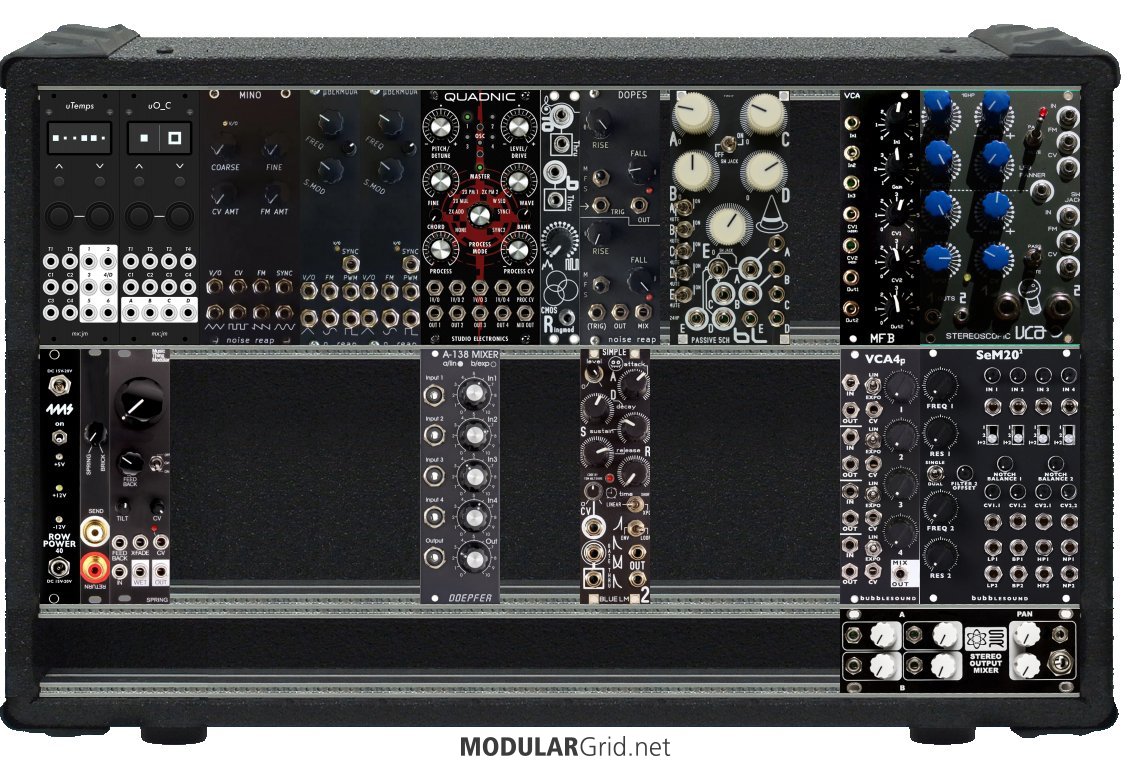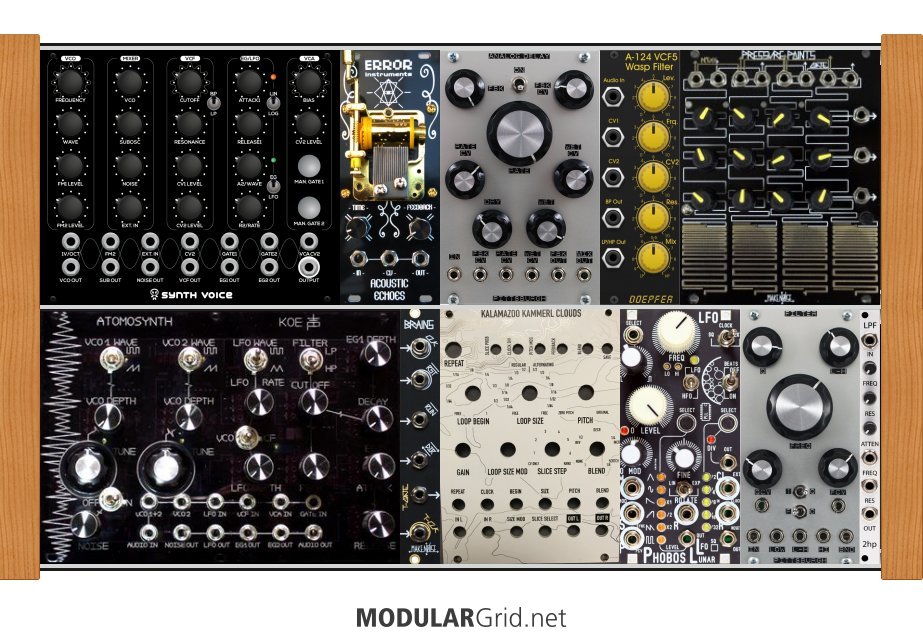It's July 2...you know what that means...
KICK ASS!!! June 2018.
...in which I have a look at the Eurorack deluge here on ModularGrid and sort out what looks the tastiest each prior month. Gonna be a shorter one, looks like, as the only major music trade event coming up is Summer NAMM, and that's called the 'guitar show' for a reason. Things should start to heat up again as we get closer to Knobcon in the Fall. So, let's hit it...
1) Recovery Effects Motormatic. Let's face it: sometimes you need out-and-out racket. Ring mods do that. So does bit crushing. So why not both? Well, $149 gets you this: a not-wholly-in-control clangorous crossmodulating mangler that doesn't seem at all capable of outputting 'nice' things. Instead, you get GRIT and SCREECH and all of those other oh-so-desirable Industrial-type noises and textures. If you like making music with a clear level of 'harm' to it, this module delivers. Check their website for a few examples...although, I'm sure that from those, most anyone here can extrapolate as to the abuse potential of this thing.
2) Happy Nerding 3x Stereo Mixer. This is so simple, it's stoopid! Three stereo ins, one stereo out. For summing down stereo effects, or stereo anything, that just got damn cheap ($100!) with this module's introduction. But the front panel doesn't tell the whole story, as this (and the PanMix Jr.) have backplane connections that allow a bunch of these to be stereo-bus-linked into a bigger mixer configuration. Smart! So you could take a few of these, a few of the PanMans, and whip up a bespoke performance mixer-type assemblage, or most any sort of special-purpose stereo configuration you need between those two modules.
3) Purrtronics Purrvrrb. Got a skiff and want a spring reverb? Not doable, really; where are you going to put the spring tank? So there's this, a digital spring emulator, full stereo, $130, solves that problem! Spring reverb, of course, is so nice with LPGs and the like to get that percussive 'splang' thing, ala the Buchla 100 series, just right. At 20mm depth, it'll fit any skiff, so now everyone can twannnng away without worrying about where the springs go or accidental spring-splats (if you don't like that sort of thing).
4) Takaab VC-EG. Done right, done cheaply! A CVable ADSR with LFO and Gate looping modes, plus the typical EG type operation, everything nicely controllable with input attenuators and all that good stuff. But Takaab tossed in a few extras, such as a 'Hard' mode that adds a very short top-of-envelope 'punch' stage when switched in, plus either linear or exponential modes, which means you can get a basic old linear VCA connected to this to respond either way with a switch-flip. A really intelligent ADSR design, and it deserves more than a cursory glance! $158, too...bang for the buck!
5) Ladik HAS BEEN BUSY!!! Last time out, I had a bunch of their toys to talk about, and here we are a month later with more surprises. First up are a pair of metered line input stages, the A-545 (stereo, $71-ish) and A-560 (mono, about $69) that are a nice change from the typical line-in modules, especially with multisegment LED metering to keep an eye on things, which is useful if you're inputting something that's level-critical. But wait...their M-17x mixer series ALSO now has input modules, the M-177, 178, and 179, each with different stereo configurations, and each costing a mere $86 or thereabouts. These are really neat...allowing you to, if you so choose, build a full-on stereo line mixer into your rig, allowing you to mix down EVERYTHING right there on the modular and with the modular! For those of you out there trying to get a higher level of gear integration between your modular and bunches of other boxes and bits, I think Ladik may have a solution for you.
6) Future Sound Systems FIL3 Spectral Devastator. I have to respect a module that has controls with erstwhile-irresponsible-usage indications, in this case two little switches marked 'Blast'. The FIL3 is the latest iteration of FSS's coupled dual-filter module. New surprises include a 'Colour' control in the resonance paths, attenuverters for negative modulation of the filter cutoffs, Drive and Output Level controls for more flexibility over levels and using the FIL3 in overdriven modes, and that pair of 'Blast' switches, which push each filter core into new levels of resonance, range, and drive. This thing, from the same people currently bringing us the sonic manglage that are the Gristleizer modules, promises lots and if the FIL2 and FSS's other efforts are indicative, it'll deliver. $230 or so.
7) LZX Escher Sketch. But wait...don't video modules run on a different voltage standard? Yeah, but there's converter step-down/up modules for audio level I/O, and this might be worth getting those extra for whatever use your fevered mind has planned! It's a stylus/touch pad, high-rez, 5.7” diagonal with X, Y and pressure modes, plus directional velocity sensing. And it has 'abuse potential' written all over it! This could have a lot of possible uses, especially in conjunction with a DC-coupled audio input interface so that it can 'talk' to a computer (for all sorts of things...think MAX here, folks) while at the same time doing its CV thang over the modular itself. Yeah, I'm talking recursory control here...and that's just ONE bad idea that comes to mind! I'm sure everyone can come up with more. $499-ish, which is a tad spendy but I think well-deserved for something of this sort.
8) Noise Reap Dub Delay. And in just under the wire is this: a nicely nasty little BBD-type delay for a stoopid-cheap $90. Supposedly clean up to about 300ms, past that point you get aliasing, muddy tone, lo-fi galore out to around 2000ms. Full CV control, too...time and feedback are both under CV here, and to avoid the feedback-loop overloads, Noise Reap even put a limiter circuit in the feedback path to clamp the level so the signals don't become super-hot, allowing you to jack the feedback into overload and still get a usable result. Very smart thinking there. But even neater...this device can do CV DELAY, as it's DC-coupled, so delaying (and mangling!) envelopes, LFO curves and so forth is right up this device's alley! Virtually anyone can make use of one of these for some nefarious purpose, and at only 8 hp it's an easy fit...plus, it's cheap!
And that's it this time around. Like I said, the crazy that precedes Knobcon should start before much longer, so stay tuned...the next few months look interesting!




